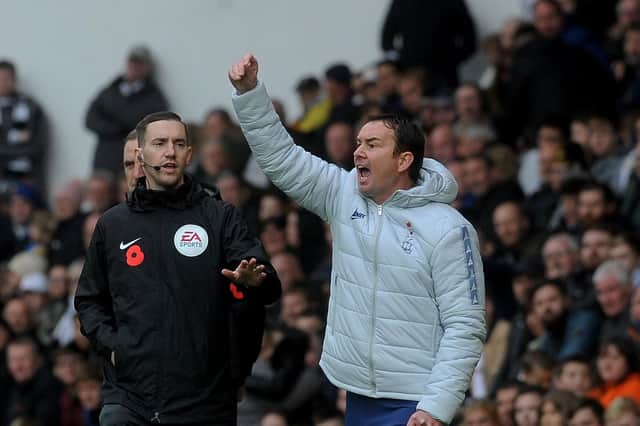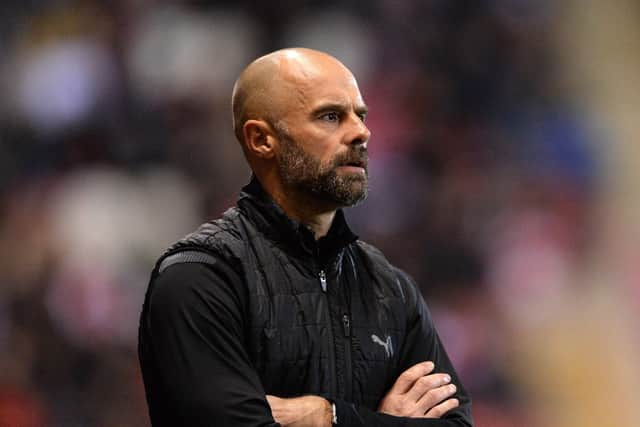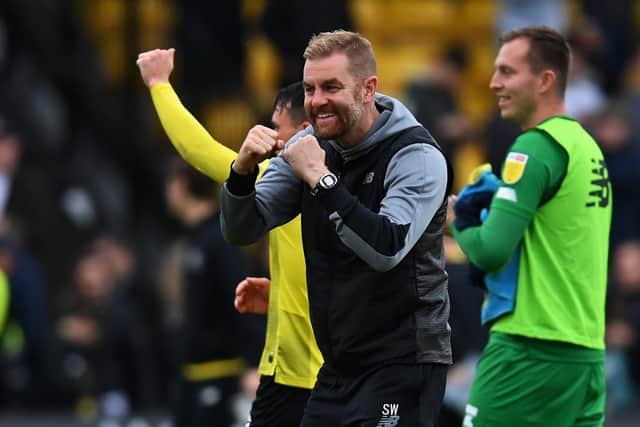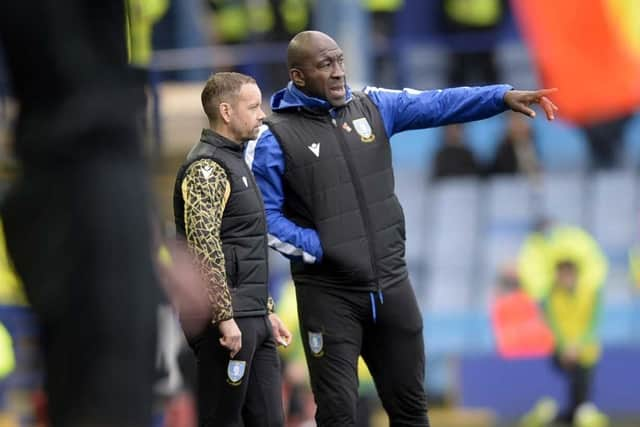Sympathy in short supply for Sheffield Wednesday and Bradford City as Rotherham United & Harrogate Town prosper - Stuart Rayner


When it comes to Leagues One and Two, Sheffield Wednesday and Bradford City are practically whales, and it can be difficult. The League One pond in particular is a bit crowded.
Which club is bigger than which is a tiresome and meaningless debate where history, present, fanbases and spending power have different weighting according to who you ask, but there is no question the Owls and the Bantams are rightly perceived that way not just by themselves but by opponents.
It ought to be a big advantage.


Advertisement
Hide AdAdvertisement
Hide AdMost professional footballers would rather play for big clubs than little ones. Those worth their salt like performing in front of big crowds and this Yorkshire duo’s gates would put both in the Championship’s top half. Attendances, though, do not equal points.
It is why Harrogate Town – with the second-lowest gates in the English leagues, lower than 11 non-league clubs including Conference North York City – and Rotherham United, hardly League One pygmies but not at the same level as their South Yorkshire neighbours, or former 21st century Premier League clubs Sunderland, Ipswich Town, Portsmouth, Bolton Wanderers, Wigan Athletic and Charlton Athletic, are looking down on their White Rose counterparts.
Because playing for a big club in a small division comes with pressures – the sort of pressures footballers should want, but may still find it hard to deal with.
Wednesday and Bradford’s 2021-22 seasons have plenty of parallels beyond FA Cup campaigns ending in 3-0 defeats on Tuesday – both within striking range of the play-offs when if you looked at their stature alone you would expect title challenges.


Advertisement
Hide AdAdvertisement
Hide AdBoth have willingly heaped pressure on themselves by saying openly they expect to win automatic promotion despite learning the hard way in recent years how their expectations have a habit of far exceeding reality.
Both have a good record against the best teams in their divisions, not so good against the minnows. Both had been doing well at avoiding defeat until Tuesday – the Owls unbeaten in 10, the Bantams with one defeat in nine – but are drawing too often – five in seven games for Wednesday, Bradford’s Cup exit ending a run of four draws.
Failing to put chances away has been a big factor, but only one. Derek Adams can at least point to injuries in the forward department, now easing.
They may be a bit tatty by the standards of the company both clubs kept in the 1999-2000 season – the Owls’ last in the Premier League, the Bantams’ penultimate one – but Valley Parade is the sort of ground with the sort of crowds a League Two player looks forward to appearing at from the June morning the fixtures are published; ditto Hillsborough for their League One counterparts.


Advertisement
Hide AdAdvertisement
Hide AdPlaying there is a seasonal highlight whereas at the weekend Wednesday’s players were working at their famous home for the fifth time in six games – it cannot be the same.
The default setting for many visiting teams is to sit deep, and see what the hosts can do about it. For those home fans expecting to watch a win, it can be deeply frustrating; for those just hoping to, it can make for a nervous 90 minutes. Unless or until the home team are in front, it can be a difficult stage to perform on.
Nobody should shed any tears over this. You will be hard-pushed to find a Rotherham or Harrogate fan feeling much sympathy as they try to operate on tighter budgets.
Simon Weaver’s Sulphurites have arguably as big a problem with defensive injuries as his boyhood Owls team, without anything like the resources to confront it, but they are just getting on with it.
Advertisement
Hide AdAdvertisement
Hide AdFor Darren Moore and Adams, the January transfer window offers an escape route out of the difficulties that crop up. Weaver and Paul Warne will be praying richer clubs have failed to notice how good their best players are.
Being a Sheffield Wednesday or Bradford player means dealing with those pressures, but being a League One or League Two player means you might not have the skillset to do so consistently. It is a big reason why they draw so often and do not always score the goals we think they ought to.
Leagues One and Two would be boring if they were decided by money alone – we have a Premier League for that (although the likes of Manchester United and Brentford are doing their best to keep it unpredictable).
Wednesday and Bradford could still go up, but you would probably rather be in Rotherham and Harrogate’s shoes. For anyone without a vested interest, that is worth celebrating.
Comment Guidelines
National World encourages reader discussion on our stories. User feedback, insights and back-and-forth exchanges add a rich layer of context to reporting. Please review our Community Guidelines before commenting.